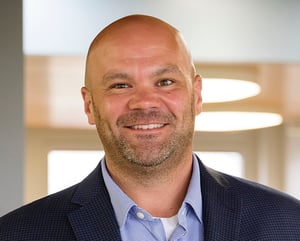As healthcare organizations focus on value, consultants must evolve
 The days of mass enterprise EHR implementations are dwindling. The frantic push for Meaningful Use incentives is over. ICD-10 is upgraded. So many of the common drivers for healthcare organizations to rely on experienced healthcare consulting organizations have diminished.
The days of mass enterprise EHR implementations are dwindling. The frantic push for Meaningful Use incentives is over. ICD-10 is upgraded. So many of the common drivers for healthcare organizations to rely on experienced healthcare consulting organizations have diminished.
But this has not reduced the value of healthcare consultants. In fact, I would argue it has created a new type of demand. As healthcare organizations are now live on the EHR, they must figure out how to unlock the promised value in terms of return on investment (ROI) and value of investment.
The challenges now lie in reducing costs, providing value-based care, increasing user efficiency and happiness, visualizing the data that’s been stored for years, and determining how to use it as a driver for improvements. This means figuring out how to take advantage of AI and predictive analytics; what to do about population health and digital transformation; and how to do all this alongside mergers, acquisitions, and affiliate partnerships.
This is all far more challenging than an implementation itself.
For most of the last decade, consultants filled key roles in implementation teams. Valuable consultants could play an important role in getting organizations from point A to point B effectively. We could utilize project plans and leverage our experiences to understand the destination: go-live. We could manage ticket volumes and work on identified issues. Or we could plan upgrades or new application roll-outs.
The key in all of these scenarios is there was a plan. The end game was very clear. We had a date to go live or upgrade. We had an issues list to work from. Often, these were supplied from somewhere or someone else and we simply used our expertise to resolve issues.
With the new landscape at hand, instead of starting with a road map, healthcare organizations know the destination where they want to end. Perhaps it’s improved operating room utilization, increased patient engagement, or less after-hours work from physicians. It could be a reduction in duplicate documentation or a decrease in A/R days or denials.
In most of these situations, the path to success is less clear. The vendor likely doesn’t have a stock project plan to follow. There are far more variables.
As consultants, this is our opportunity to be effective. Taking the time to understand the changing landscape, demands, technology, and regulations is critical as we progress in healthcare consulting. Going forward, clients and potential clients will be coming to us with a desired future state. It's up to us to determine the path to success, to identify the metrics we'll measure to ensure success, and to ensure we deliver on those success factors.
We have the opportunity to be proactive. If an organization is paying millions of dollars in CMS penalties for Hospital Acquired Conditions, we can design a process to improve documentation and care coordination to reduce these situations. If we can reduce the penalty by even 10 percent, it would prove a highly valuable engagement in terms of ROI, especially on an annual basis.
With the nation’s focus on the opioid epidemic, many organizations are determining ways to better visualize the data and highlight ordering, dispensing, or return habits out of the norm. But the increased value is in helping to develop a program around what to do with the data, not just in displaying it.
Physician burnout is at an all-time high, and this impacts every one of us as patients. Historically, we rolled out new features and technology because we believed there was value to be gained from the EHR. Now we have the tools to measure these changes. We can create programs to identify physicians or specialties that are struggling with their patient volumes. We can understand how they’re using the EHR, how many hours they’re in the system, which activities are consuming the most time, and whether certain time-saving features are used. We can compare this to peers. We can compare this across patient acuities. Most importantly, we can now target specific groups to develop a program of improved technology and training.
And we can measure it over time to see results.
These are just a few examples of the opportunities at hand. Healthcare consulting is alive and well. But just like healthcare itself, it’s evolving. It requires us to figure out where point A is located in order to plan how to get to point B. We have to see the forest for the trees.
We must be strategic in how we address and solve problems. This requires expertise beyond the EHR. It’s a pivot from the way we’ve had to operate in recent years. But it’s the prime way to positively impact healthcare organizations, providers and patients most significantly.
There’s value out there. It’s up to us as partners to unlock it.
